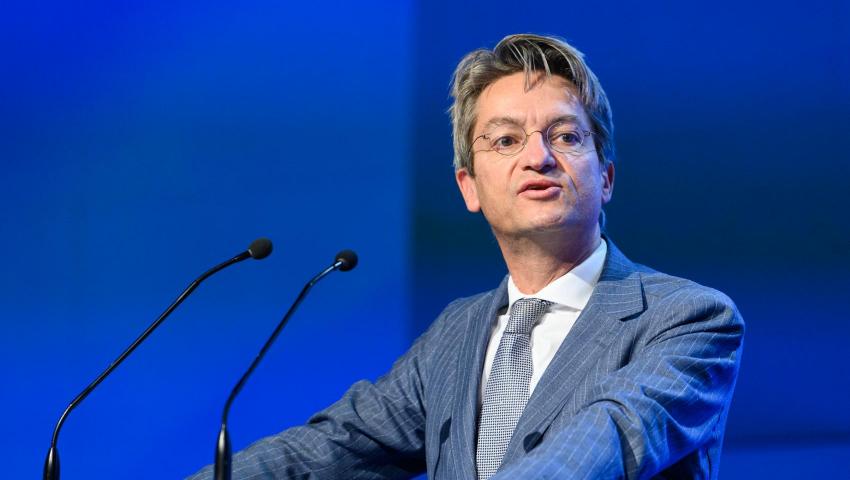Erd Huben: When you enter the Eurozone you will get bonuses
Watch how you position yourself and do not relax market discipline, advises the director of financial markets of the Netherlands National Bank

Photo: Nikolay Iliev, Dir.bg
I would like to start by telling you why I am back in Sofia. I was here in 1994-95 when there were negotiations with the IMF about your external debt and your restructuring scheme and I assisted your government in introducing the currency board, which were successful. If you had told me then that the Soviet Union would collapse, and it would come on the eve of Bulgaria's admission to the Eurozone, I would have said that those were too good wishes.
That's why I'm telling you now: Keep going, you've come a long way and I'm very impressed by what I see in Sofia. This is what Erd Huben, the director of financial markets of the Netherlands National Bank, said at the beginning of his speech at the financial conference "Bulgaria in the Eurozone - advantages and opportunities", held today and organized by Dir.bg, with the media partnership of 3e-news.net .
First on the convergence. The Vice President talked about it at the beginning, but real convergence is crucial for the sustainability of the Eurozone. We are highly integrated financially and socially, we also have freedom of mobility and labor markets. And in order for us to work together as countries, it is very important that we have a common convergence.
Before the introduction of the euro there was a lively debate, incl. with the participation of academia as well, whether the introduction of the euro in itself will lead to convergence. Some said that there would be, others that there would not be, because the states would specialize. After 20 years since the introduction of the euro, it does not in itself support convergence. We saw in the first 10 years of the euro that the financial cycles between countries diverged enormously – in some countries there was a credit boom, and in others like my country and Germany, the expansion of the economy was very modest. This along with the crises of 2007 and 2008 and then in 2012 the crisis spread to the Eurozone.
Therefore, I want to tell Bulgaria that real convergence does not happen by itself, you must achieve it yourself through the appropriate structural and institutional policies, independence of the central bank, I emphasize this because it is very important to have mechanisms for mutual control. In order to achieve real and sustainable convergence to the levels of other countries, it is important to have practical training, education. This is my first message.
What happens when you join the Eurozone? I'll offer you some good news and some not so good news. When you enter the Eurozone, you will receive bonuses, because risk premiums on loans will fall everywhere, you will have better access to the financial markets, to institutional investors, and part of their funds will go to Bulgaria. This is your country bonus.
After that, market discipline will break down because the financial markets will not discipline you as strictly, so it is even more important to watch carefully what policy you do in the Eurozone. Your decisions won't immediately get you out of hand, but eventually you will if you don't follow the rules. It should be noted that the reverse effect of money is sometimes sharp, sometimes delayed, but it hurts.
If, however, your policies are appropriate, I will refer to the experience of my country, we see how the graphs of GDP per capita move. Since the Netherlands entered the Eurozone (January 1, 1999) the graphs are mostly in orange (moderate growth), but there are also huge benefits, but as I said, convergence does not happen by itself. You will benefit by joining, but be wise and prudent, be careful how you use these benefits and watch how you position yourself, but do not relax market discipline.
